
Gilbert Bécaud was a French singer, composer, pianist and actor, known as "Monsieur 100,000 Volts" for his energetic performances. His best-known hits are "Nathalie" and "Et maintenant", a 1961 release that became an English language hit as "What Now My Love". He remained a popular artist for nearly fifty years, identifiable in his dark blue suits, with a white shirt and "lucky tie"; blue with white polka dots. When asked to explain his gift he said, "A flower doesn't understand botany." His favourite venue was the Paris Olympia under the management of Bruno Coquatrix. He debuted there in 1954 and headlined in 1955, attracting 6,000 on his first night, three times the capacity. On 13 November 1997, Bécaud was present for the re-opening of the venue after its reconstruction.
"Salma Ya Salama" is an Egyptian Folk song by Dalida from 1976, based on the original song by Sayed Darwish. The track became one of the singer's biggest hits and his remix, released in 1997, was certified silver in France.

"Génération 78" is a song by French singer Dalida featuring French singer Bruno Guillain. It's a megamix of Dalida's previous hits, remixed in disco style, including a new piece written by Jeff Barnel that permeates throughout the song. First released on single in March 1978, it soon became #1 hit in France and achieved success in Europe and Canada.

Gondolier is the third French language studio album by French singer Dalida. The album contains Dalida's second #1 hit, the famous exotical Gondolier. The album contains other minor hits such as "Buenas noches mi amor", "Histoire d'un amour" and the pop-rock oriented "Le jour où la pluie viendra".

Les Gitans is the fourth studio album by French-Italian singer Dalida, released by Barclay Records, catalogue number 80 094, in 1958. In 2002, Sammel released a remastered version in CD and 10" (25 cm) vinyl record (LP), catalogue number 981 109-7. In 2004, Universal Records released a remastered CD, catalogue number 981 108-5, as part of a compilation containing re-releases of all of Dalida's studio albums recorded under the Barclay label.

Il Silenzio is an album by Dalida. It marked her comeback to a more successful career. It contains her success "Il Silenzio ", "Scandale dans la famille" and the Greek flavoured "La danse de Zorba".
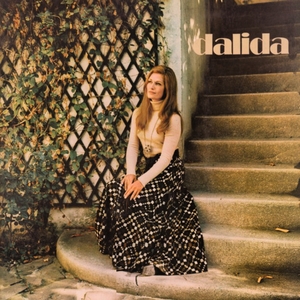
This album of Dalida coincided with several changes in her career: the 1970s were coming, her label was no longer Barclay Records but her brother Orlando's International Shows, and she was also changing her style to a more mature adult contemporary music. The success of this album is the proof, exemplified by the Greek folkloric summer hit "Darla dirladada", "Ils ont changé ma chanson," and "Lady d'Arbanville".

Une vie is an album by Dalida, which continues the adult contemporary style of her previous album and contains songs such as the Italian "Mamy blue", "Avec le temps" and "Les choses de l'amour".

Julien is a studio album of songs by Dalida recorded and released in 1973.
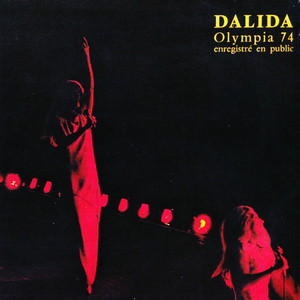
Olympia 74 is an album of songs by Dalida recorded live at the Olympia in Paris and released in 1974.
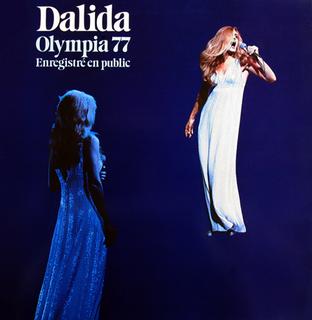
Olympia 77 is an album of songs by Dalida recorded live at the Olympia in Paris and released in 1977.
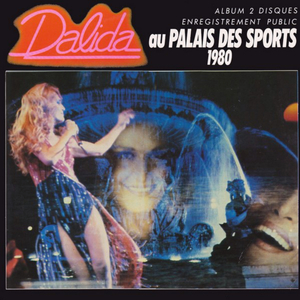
Palais des Sports 80 is a live double album by Dalida, recorded live at the Palais des Sports in Paris in January 1980.

Mondialement vôtre is a multi-language album released by Dalida in 1982. This album contains new French single material, plus other language versions of Dalida previous hits and a new Arabic Medley called "Aghani Aghani" that is the biggest hit of the album.

Le visage de l'amour is the last album Dalida released a year before her death. It was also her first album to be made as a CD format. The name "Le visage de l'amour" is usually used by Dalida to describe her public and her fans, it was picked up by the big French artist Charles Trenet who decided to write a song for Dalida bearing this name. It eventually became the name of her last album.
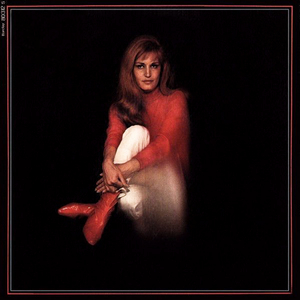
De "Bambino" à "Il silenzio" was Dalida's first compilation album, released in France in 1967 by Barclay Records

"Bambino" is a song recorded by French singer Dalida that became her first major hit. It was first released on 28 October 1956 as title song of her third EP, prior to her debut album Son nom est Dalida. Bambino spent 45 weeks atop the French song charts, becoming the longest-running number one song in world history.

The repertoire of the Italian-French singer Dalida includes no less than 700 songs that have led her to record in 11 languages.
"The Day the Rains Came" or "Am Tag als der Regen kam" or "La pioggia cadrà" is an adaptation of the French song "Le jour où la pluie viendra". The latter is a popular song released in 1957, composed and written by Gilbert Bécaud and Pierre Delanoë.

"Dans la ville endormie" is a French language song recorded by singer Dalida, first released on EP during summer of 1968. It is the product of Dalida's collaboration with composer William Sheller with whom she worked on Le temps des fleurs, her album released later that year. English language cover "My year is a day" by Les Irrésistibles achieved success several months later.

















